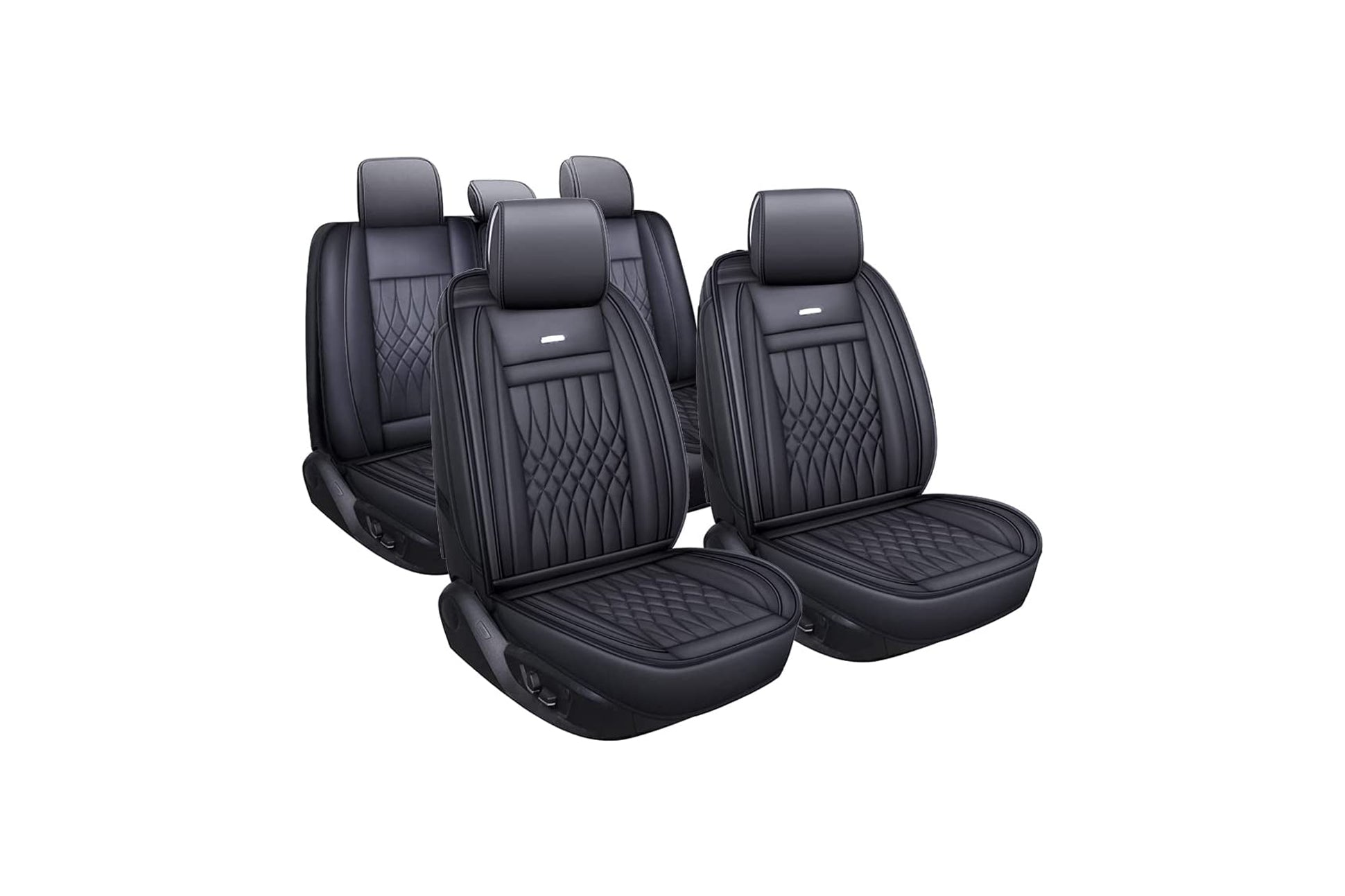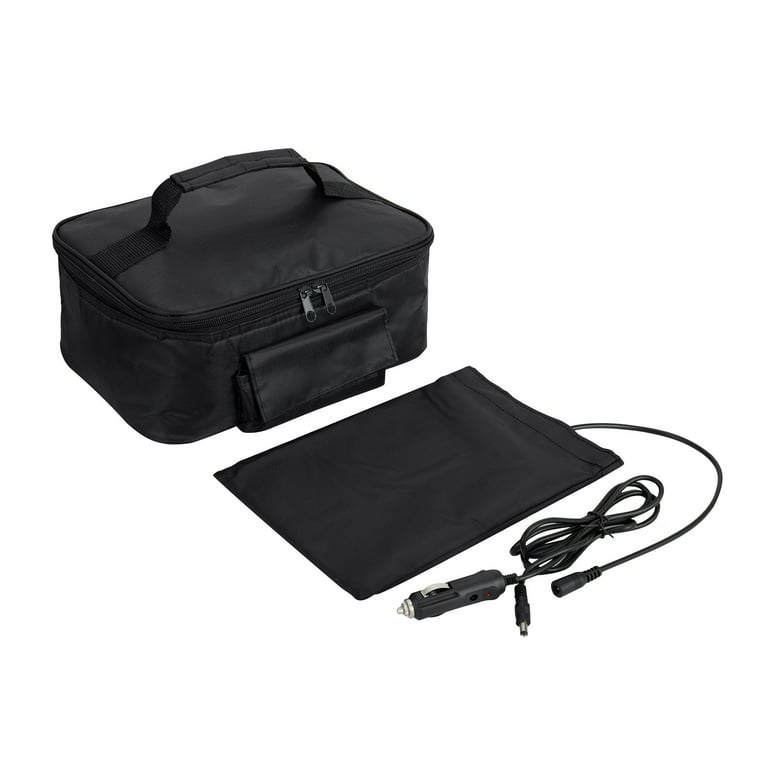Hitch Receiver Plugs A Comprehensive Guide
Hitch receiver plugs are an essential accessory for any vehicle equipped with a tow hitch. They serve several important functions, including protecting the hitch receiver from dirt, debris, and moisture, as well as providing a secure connection when towing or hauling. This extensive guide will delve into the world of hitch receiver plugs, exploring their different types, materials, features, and installation procedures. By understanding the intricacies of hitch receiver plugs, you can choose the most suitable one for your vehicle and towing needs, ensuring a safe and efficient experience.
Hitch Receiver Plug Options and Features
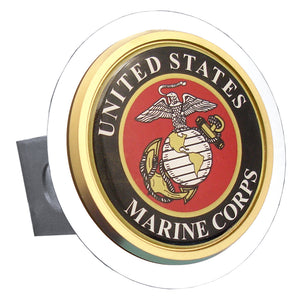
Types of Hitch Receiver Plugs:
When it comes to hitch receiver plugs, there are several types available on the market, each with its own unique features and benefits. Here are some of the most common types:
- Universal Plugs: Universal plugs are adaptable to fit a wide range of hitch receiver sizes. They feature an adjustable design that allows them to be used with different receiver openings.
- Receiver Pin Plugs: Receiver pin plugs are designed to fit snugly into the pinhole of the hitch receiver. They are typically made of metal and lock in place with a key or a pin.
- Safety Chain Loops: Safety chain loops are used to attach safety chains to the hitch receiver. They have a loop design that allows chains to be easily connected and disconnected.
Materials of Hitch Receiver Plugs:
The materials used in the construction of hitch receiver plugs play a significant role in their durability and performance. Common materials include:
- Rubber: Rubber hitch receiver plugs are flexible and weather-resistant, making them ideal for protecting the receiver from dirt and moisture.
- Aluminum: Aluminum plugs are lightweight yet durable, providing a strong and secure fit for towing applications.
- Steel: Steel hitch receiver plugs offer maximum strength and security, making them suitable for heavy-duty towing tasks.
Features to Look for in Hitch Receiver Plugs:
When choosing a hitch receiver plug, consider the following features to ensure you get the best value for your money:
- Weatherproofing: Opt for a plug that is designed to withstand harsh weather conditions and prevent rust and corrosion.
- Locking Mechanism: Look for a plug with a secure locking mechanism to prevent theft and ensure a tight fit.
- Compatibility: Choose a plug that is compatible with your specific hitch receiver size and type for a seamless installation.
How to Choose the Right Hitch Receiver Plug
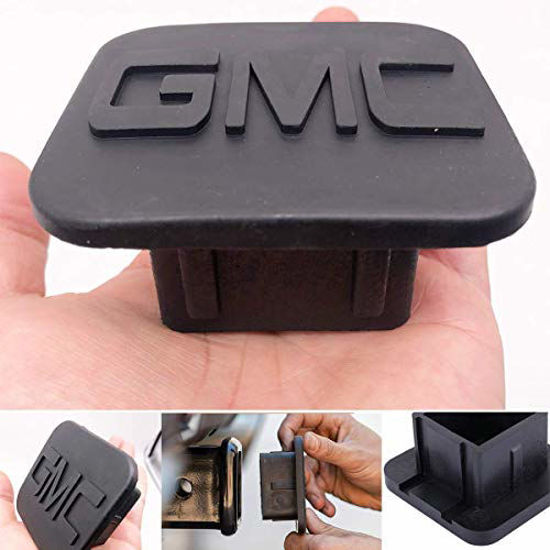
When selecting a hitch receiver plug for your vehicle, there are several factors to consider to ensure you get the right fit and functionality. Here are some tips to help you choose the right hitch receiver plug:
- Determine Your Hitch Receiver Size: Measure the opening of your hitch receiver to determine the correct size for the plug.
- Consider Your Towing Needs: Think about the weight capacity and towing requirements of your vehicle to select a plug that can handle the load.
- Choose a Durable Material: Select a plug made from a durable and weather-resistant material to ensure long-lasting performance.
- Check for Compatibility: Make sure the plug is compatible with your specific hitch receiver type and style for a secure fit.
Table 1: Comparison of Hitch Receiver Plug Types
| Hitch Receiver Plug Type | Material | Features | Compatibility |
|---|---|---|---|
| Universal Plug | Rubber | Adjustable design | Various sizes |
| Receiver Pin Plug | Aluminum | Locking mechanism | Specific pinhole |
| Safety Chain Loop | Steel | Loop design | Safety chains |
Hitch Receiver Plug Installation Guide

Proper installation of a hitch receiver plug is crucial for ensuring a secure and reliable connection when towing. Here is a step-by-step guide to installing a hitch receiver plug:
- Choose the Right Plug: Select a hitch receiver plug that matches the size and type of your hitch receiver.
- Clean the Receiver Opening: Remove any dirt or debris from the receiver opening to ensure a clean surface for the plug to fit into.
- Insert the Plug: Slide the plug into the receiver opening and make sure it fits securely.
- Secure the Plug: Use the locking mechanism, if applicable, to secure the plug in place and prevent it from coming loose during towing.
By following these simple steps, you can install a hitch receiver plug with ease and confidence, knowing that your towing setup is safe and secure.
Hitch Receiver Plug Maintenance Tips
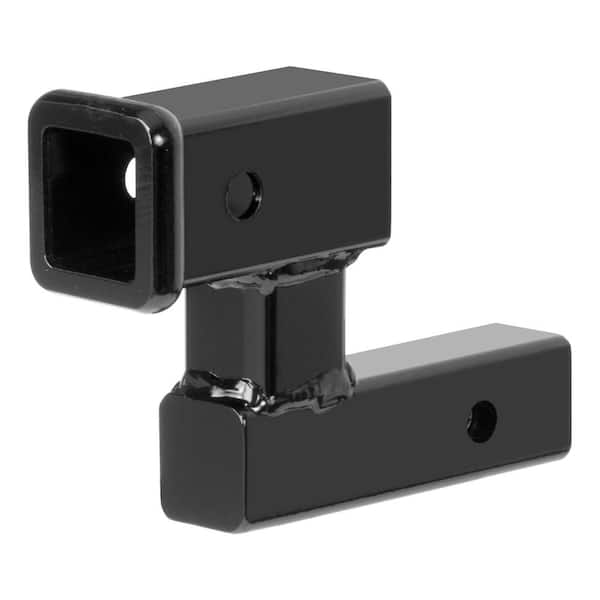
To ensure the longevity and effectiveness of your hitch receiver plug, regular maintenance is essential. Here are some maintenance tips to keep your plug in top condition:
- Clean Regularly: Periodically clean the plug to remove any dirt, grime, or debris that may accumulate during use.
- Inspect for Damage: Check the plug for any signs of wear or damage, such as cracks or corrosion, and replace it if necessary.
- Lubricate Moving Parts: If your plug has moving parts, such as a locking mechanism, lubricate them regularly to ensure smooth operation.
- Store Properly: When not in use, store the plug in a cool, dry place to prevent rust and deterioration.
By following these maintenance tips, you can prolong the life of your hitch receiver plug and ensure optimal performance whenever you need to tow or haul.
Hitch Receiver Plug Troubleshooting Guide

Despite regular maintenance, issues with hitch receiver plugs may arise from time to time. Here are some common problems and solutions to help troubleshoot your plug:
- Loose Fit: If the plug does not fit securely in the receiver opening, check for any obstructions or debris that may be preventing a tight seal.
- Locking Mechanism Failure: If the locking mechanism is not working correctly, inspect the key or pin for damage and replace if necessary.
- Rust and Corrosion: If rust or corrosion is present on the plug, clean the affected areas with a rust remover and apply a protective coating to prevent further damage.
- Compatibility Issues: If the plug is not compatible with your hitch receiver, consider purchasing a new plug that meets the specifications of your vehicle.
By addressing these common issues promptly, you can ensure that your hitch receiver plug continues to function effectively and safely during towing operations.
Hitch Receiver Plug Wiring Diagrams
In addition to providing a secure connection for towing, some hitch receiver plugs may also include wiring for trailer lights and brakes. Here are some common wiring diagrams for hitch receiver plugs with electrical connections:
-
4-Pin Wiring Diagram:
- White wire: Ground
- Brown wire: Tail/running lights
- Yellow wire: Left turn signal/brake light
- Green wire: Right turn signal/brake light
-
7-Pin Wiring Diagram:
- White wire: Ground
- Brown wire: Tail/running lights
- Yellow wire: Left turn signal/brake light
- Green wire: Right turn signal/brake light
- Blue wire: Electric brakes
- Red wire: Auxiliary power
- Black wire: Reverse lights
By following the appropriate wiring diagram for your hitch receiver plug, you can ensure that your trailer lights and brakes operate correctly while towing.
Hitch Receiver Plug Safety Considerations
When using a hitch receiver plug for towing, safety should always be a top priority. Here are some safety considerations to keep in mind when using a hitch receiver plug:
- Proper Installation: Ensure that the plug is securely installed in the receiver opening and that any locking mechanisms are engaged to prevent the plug from coming loose.
- Weight Capacity: Do not exceed the weight capacity of the plug or the hitch receiver to avoid accidents or damage to your vehicle.
- Regular Inspections: Periodically inspect the plug for signs of wear or damage and replace it if necessary to maintain a safe towing setup.
- Follow Manufacturer's Guidelines: Adhere to the manufacturer's recommendations for proper use and maintenance of the hitch receiver plug to ensure safe and reliable towing.
By following these safety considerations, you can enjoy peace of mind knowing that your towing setup is secure and compliant with safety standards.
Hitch Receiver Plug Legal Requirements
Before using a hitch receiver plug for towing, it's essential to be aware of any legal requirements that may apply in your area. Here are some common legal considerations related to hitch receiver plugs:
- Licensing and Registration: Some jurisdictions may require trailers equipped with hitch receiver plugs to be licensed and registered for road use.
- Safety Standards: Ensure that your hitch receiver plug meets safety standards and regulations to avoid fines or penalties for non-compliance.
- Weight Restrictions: Be aware of any weight restrictions or towing limits that apply to your vehicle and hitch receiver to stay within legal limits.
- Insurance Coverage: Verify that your insurance policy covers towing activities and any potential liabilities associated with the use of a hitch receiver plug.
By staying informed about legal requirements and regulations, you can tow with confidence and avoid any legal issues while on the road.
Hitch Receiver Plug Accessories

In addition to the hitch receiver plug itself, there are several accessories available to enhance the functionality and convenience of your towing setup. Here are some popular hitch receiver plug accessories:
- Hitch Locks: Hitch locks provide an added layer of security by preventing the plug from being removed without the key or combination.
- Wiring Harnesses: Wiring harnesses simplify the connection of trailer lights and brakes to your vehicle, allowing for quick and easy installation.
- Hitch Covers: Hitch covers not only add a personalized touch to your vehicle but also protect the plug from dirt, debris, and weather elements when not in use.
By incorporating these accessories into your towing setup, you can improve efficiency, safety, and overall user experience while on the road.
Hitch Receiver Plug Brands and Models
When shopping for a hitch receiver plug, you'll find a variety of brands and models to choose from, each offering different features and benefits. Here are some popular hitch receiver plug brands and models on the market:
-
CURT:
- CURT 22272 Rubber Trailer Hitch Receiver Tube Cover
- CURT 21510 Coated Steel Trailer Hitch Receiver Tube Cover
-
Reese:
- Reese Towpower 7020500 1-1/4" to 2" Receiver Adapter
- Reese 7052600 Class III Interlock Security Kit
-
B&W:
- B&W TS10048C Class IV 2" and 2-5/16" Dual Ball
- B&W GNXA2061 Turnoverball Gooseneck Hitch Ball
By exploring different brands and models of hitch receiver plugs, you can find the one that best suits your towing needs and preferences, ensuring a seamless and secure connection for your vehicle.
Conclusion
In conclusion, hitch receiver plugs are indispensable accessories for any vehicle equipped with a tow hitch, offering protection, security, and convenience during towing operations. By understanding the various types, materials, features, and installation procedures of hitch receiver plugs, you can make an informed decision when choosing the right plug for your vehicle. Remember to prioritize safety, follow legal requirements, and perform regular maintenance to ensure that your hitch receiver plug performs optimally and safely every time you hit the road. With the plethora of options and accessories available, you can customize your towing setup to meet your specific needs and enjoy a hassle-free towing experience.
Hitch Receiver Plug Wiring Diagrams

When it comes to connecting your trailer lights and brakes to your vehicle, hitch receiver plugs play a crucial role. Different types of plugs require specific wiring configurations to ensure proper functionality. Here are some common wiring diagrams for hitch receiver plugs with electrical connections:
4-Pin Wiring Diagram
- White wire: Ground
- Brown wire: Tail/running lights
- Yellow wire: Left turn signal/brake light
- Green wire: Right turn signal/brake light
By following this wiring diagram, you can establish the necessary connections for basic lighting functions while towing.
7-Pin Wiring Diagram
- White wire: Ground
- Brown wire: Tail/running lights
- Yellow wire: Left turn signal/brake light
- Green wire: Right turn signal/brake light
- Blue wire: Electric brakes
- Red wire: Auxiliary power
- Black wire: Reverse lights
This wiring diagram is suitable for more complex towing setups that involve additional features like electric brakes and auxiliary power.
By referring to these wiring diagrams and ensuring the correct connections, you can guarantee the proper operation of your trailer lights and brakes while on the road.
Hitch Receiver Plug Safety Considerations
Safety is paramount when it comes to towing, and hitch receiver plugs play a critical role in ensuring a secure connection between your vehicle and trailer. Here are essential safety considerations to keep in mind:
- Proper Installation: Always install the plug securely in the receiver opening and engage any locking mechanisms to prevent it from dislodging during travel.
- Weight Capacity: Adhere to the weight capacity limits of both the plug and the hitch receiver to avoid overloading and potential accidents.
- Regular Inspections: Periodically inspect the plug for signs of wear, corrosion, or damage, and replace it as needed to maintain a safe towing setup.
- Follow Manufacturer's Guidelines: Strictly follow the manufacturer's recommendations for installation, usage, and maintenance to ensure optimal safety and performance.
Prioritizing these safety considerations will help you tow with confidence, knowing that your hitch receiver plug setup is reliable and compliant with safety standards.
Hitch Receiver Plug Legal Requirements
Before hitting the road with your trailer and hitch receiver plug, it's crucial to be aware of any legal requirements that may apply to your towing setup. Here are some common legal considerations regarding hitch receiver plugs:
- Licensing and Registration: Some jurisdictions mandate the licensing and registration of trailers equipped with hitch receiver plugs for road use.
- Safety Standards: Ensure that your plug meets all safety standards and regulations to avoid penalties for non-compliance.
- Weight Restrictions: Be mindful of weight restrictions and towing limits applicable to your vehicle and hitch receiver to stay within legal boundaries.
- Insurance Coverage: Confirm that your insurance policy covers towing activities and any associated liabilities related to using a hitch receiver plug.
By understanding and adhering to legal requirements, you can mitigate the risk of fines, violations, or other legal issues while towing with a hitch receiver plug.
Hitch Receiver Plug Accessories
Enhance the functionality and convenience of your towing setup with a range of accessories designed to complement your hitch receiver plug. Here are popular hitch receiver plug accessories:
- Hitch Locks: Provide added security by preventing unauthorized removal of the plug without the key or combination.
- Wiring Harnesses: Simplify the connection of trailer lights and brakes to your vehicle, facilitating quick and easy installation.
- Hitch Covers: Add a personalized touch to your vehicle while protecting the plug from dirt, debris, and weather exposure when not in use.
Incorporating these accessories into your towing configuration can improve efficiency, safety, and overall user experience on the road.
Hitch Receiver Plug Brands and Models
When shopping for a hitch receiver plug, you'll encounter various brands and models offering distinct features and advantages. Explore popular hitch receiver plug brands and models available in the market:
-
CURT:
- CURT 22272 Rubber Trailer Hitch Receiver Tube Cover
- CURT 21510 Coated Steel Trailer Hitch Receiver Tube Cover
-
Reese:
- Reese Towpower 7020500 1-1/4" to 2" Receiver Adapter
- Reese 7052600 Class III Interlock Security Kit
-
B&W:
- B&W TS10048C Class IV 2" and 2-5/16" Dual Ball
- B&W GNXA2061 Turnoverball Gooseneck Hitch Ball
By exploring different brands and models, you can select a hitch receiver plug that aligns with your towing requirements, ensuring a secure and seamless connection for your vehicle.
Conclusion
In conclusion, hitch receiver plugs are essential components for any vehicle equipped with a tow hitch, providing protection, security, and convenience during towing operations. Understanding the types, materials, features, and installation procedures of hitch receiver plugs empowers you to make informed decisions when selecting the right plug for your vehicle. Prioritizing safety, adhering to legal requirements, and conducting regular maintenance are key factors in ensuring optimal performance and safety of your hitch receiver plug setup. With a wide array of options and accessories available, you can customize your towing arrangement to suit your specific needs and enjoy a smooth towing experience on the road.

